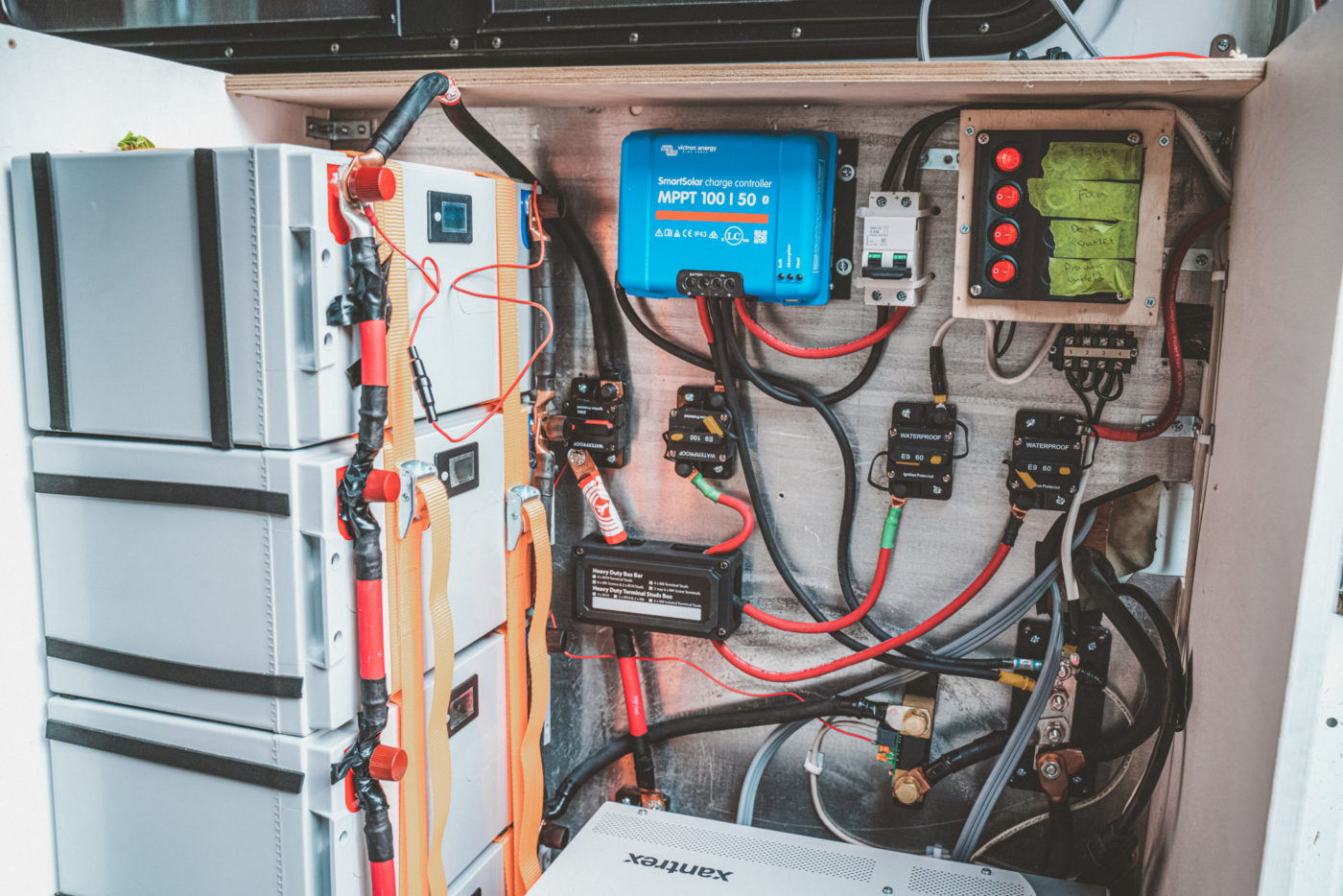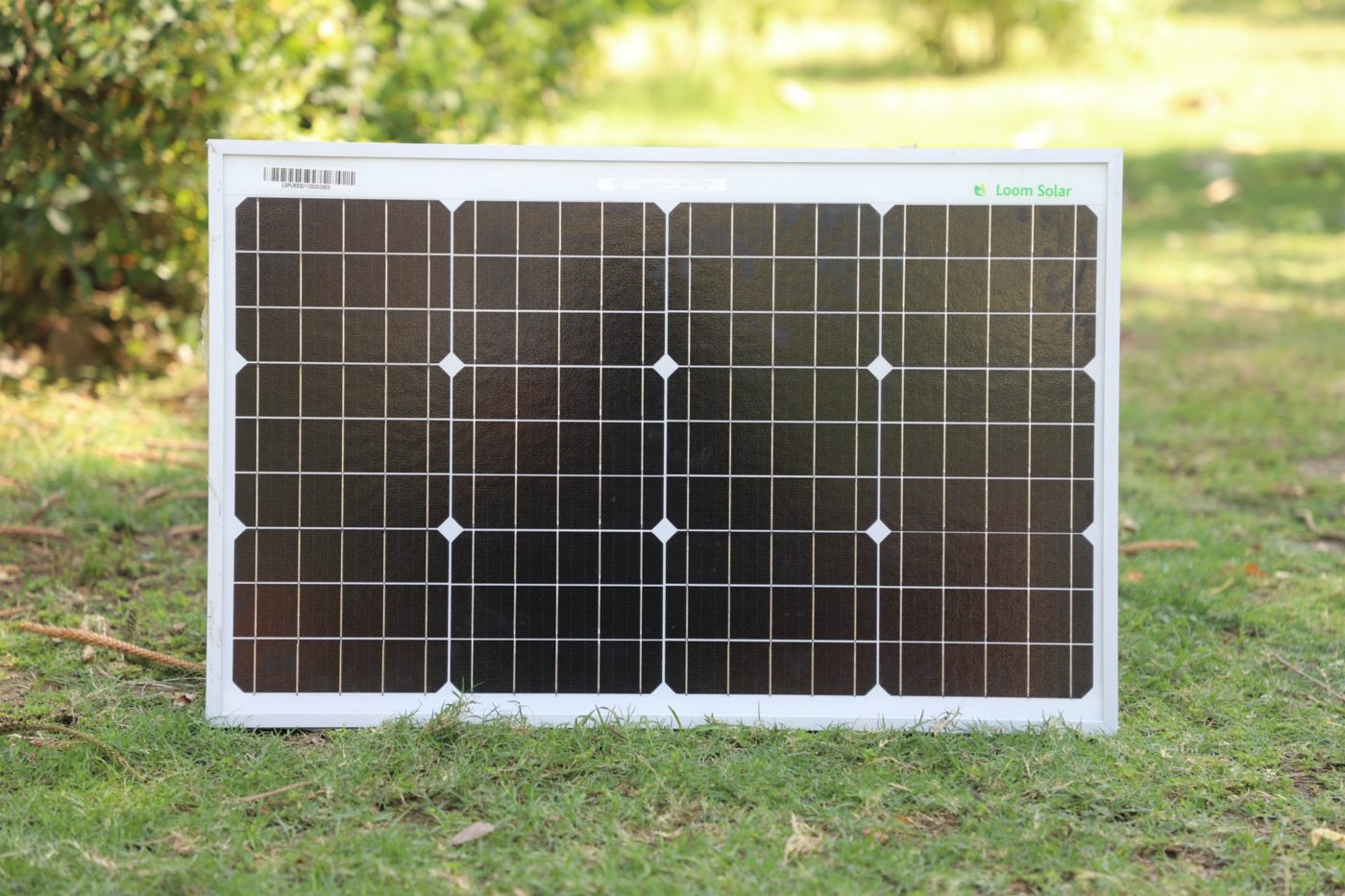Whether you’re bound for boondocking or just looking for some extra power, a camper van solar system can be life-changing. With the power of the sun, you can generate electricity to fuel your devices and live off-grid. And with no need to rely on shore power to charge your laptop or run your fridge, you’ll be self-sufficient and free to wild camp for as long as your heart desires.
*This post may contain affiliate links, as a result, we may receive a small commission (at no extra cost to you) on any bookings/purchases you make through the links in this post. As an Amazon Associate, we earn from qualifying purchases. Read our full disclosure
That all sounds great, but how does a solar panel work anyway? How many watts will I need? What are the best solar panels for campervans?
Choosing the best solar panels for vans can be overwhelming. When we made the caravan solar system on our van Benji, we did a ton of research. Now, we are passing on that research to you!
Here’s everything you need to know about solar panels for camper vans, including our top picks.
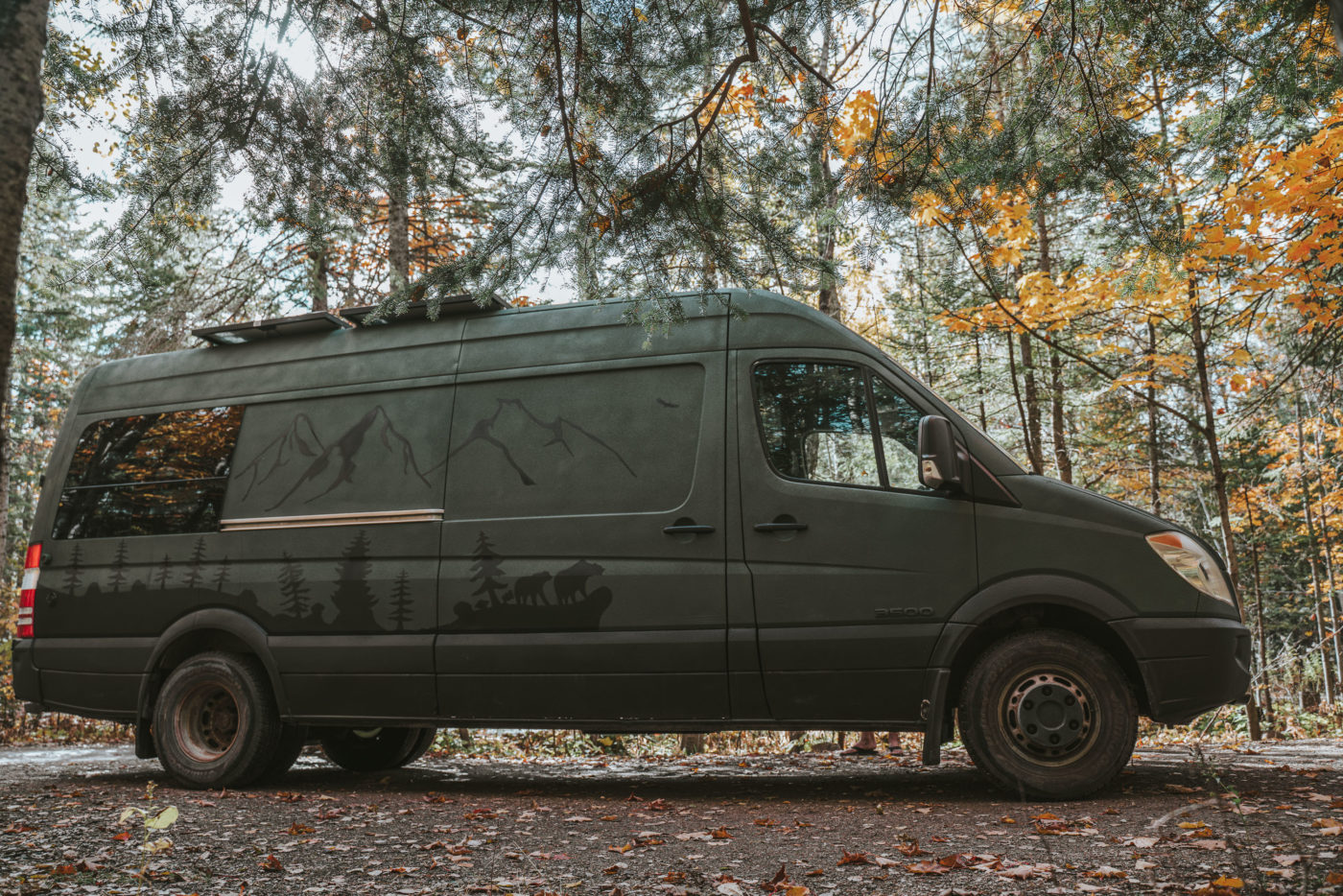
Traveling Soon? Here is a list of our favourite travel providers and accessories to help get you ready for your upcoming trip!
Why Get a Solar Panel for Your Campervan
Installing solar panels allows you to harness the renewable energy of the sun into electricity to power your daily life. In short, solar panels for a van = freedom to live and travel off-grid. Even if you don’t have direct sun, the photovoltaic cells on your caravan solar panels absorb energy. This power is then stored in your battery bank which you can tap into to run your devices.
The amount of power generated is dependent on many factors but even with one panel, you can start utilizing sustainable electricity. Plus, wiring solar panels is a lot more straightforward than you may think and a totally worthwhile investment!
READ NEXT: 10 Beautiful Sprinter Van Conversions to Inspire Your Build
Types of Solar Panels
If you’re thinking of adding a solar array to your camper van, start by understanding the different types of solar panels. This way you can assure you’re buying solar panels that are a good fit for your van and lifestyle.
Flexible Solar Panels
Flexible panels are lightweight, easy to install and work well on curved surfaces. They’re like a giant sticker that sits directly on your roof without taking up much space. There’s no need to drill holes or use mounting hardware so installation is a breeze.
But, a flexible solar panel does have its downsides. They are prone to scratching (which can affect power output) and generally aren’t as durable as rigid panels. While they can be pricey, they do work well in certain scenarios where rigid panels aren’t an option.
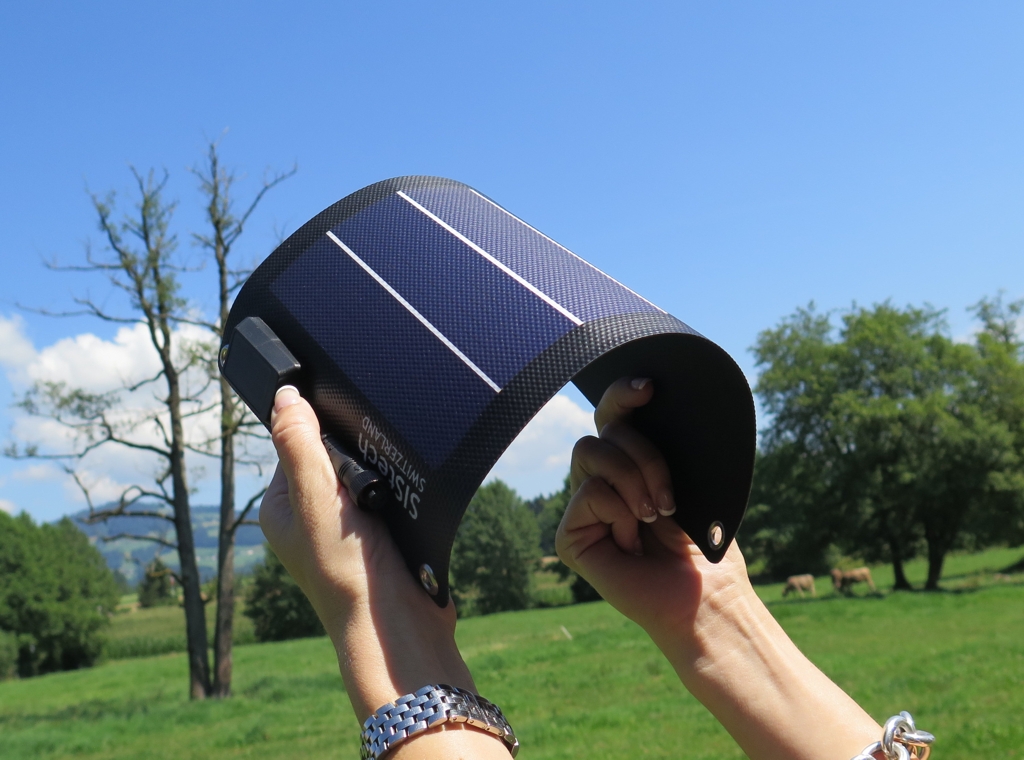
Rigid Solar Panels
Rigid panels are the standard when it comes to fixed solar panels that are permanently mounted to your roof. These are popular as home, motorhome solar panels, and boat solar panels because they’re durable, efficient, and affordable. The aluminum frame is easily installed on roof racks or directly on your van with mounting brackets.
Rigid panels come in a variety of sizes and can usually suit any budget. Installation is a little more hands-on than with flexible panels but they’re way more versatile. Overall, these are the best solar panels for general use.
Portable Solar Panels
Portable panels are a great option for weekend trips, especially when you don’t want to install solar panels permanently. Often sold as solar suitcases, portable solar panels for campers fold out to catch the sun at any angle. This means they can take advantage of sun that fixed panels can’t, but only when you have the space to do it.
Naturally, portable panels require constant set-up and need to be stored when not in use. But, they’re usable in cars, SUVs, and as solar panels for trailers too, without taking up any roof space.
READ NEXT: 10 Best Campervan Fridges For Your Vanlife Conversion
Monocrystalline Panels vs Polycrystalline Panels
Van solar panels come in two main types with a few key differences: monocrystalline and polycrystalline.
A monocrystalline solar panel works efficiently thanks to single crystal silicon. These are the best solar panels for van conversion use but can be expensive.
Polycrystalline panels have various silicon crystals that are small and less efficient. They do perform well in shady areas with little direct sunlight but can’t produce as much power as monocrystalline. For that reason, they’re less expensive but still very durable.
You can recognize monocrystalline panels by their grid pattern with small diamond shapes between the solar cells. Meanwhile, a polycrystalline panel just has a rectangular grid pattern with thin straight lines separating the solar cells.
Lastly, there are also non-crystalline panels called amorphous panels. They’re made from silicon film instead of cells. They perform well in low light but they’re nowhere near as efficient compared to mono or polycrystalline panels. Our advice? Stick with monocrystalline or polycrystalline solar panels for caravans.
How Much Solar Power Do You Need?
All the jargon about watts and volts can get a little confusing. People often wonder, “is a 100W solar panel enough for a campervan?” and the truth is, it really depends on your lifestyle. That said, we’d always recommend adding more solar power than you think you need.
So, how many solar panels would it take to power a camper van? The size of your solar power system is based on what you’ll be running off of it. Think of this in terms of watts and not the number of solar panels. Will you just have it to power LED lights and charge your phone? Or are you relying on your solar system to run your fridge, stove, and hot water heater?
Another thing to consider is your battery capacity (measured in amp hours). The wattage of your solar panel array is irrelevant if you don’t have the battery bank to store it.
We determined our power usage by doing a power audit using info from Nate at Explorist. We knew we didn’t want to use any propane in our van so we added up all of our appliances. So, we landed on a 400 Amp Hour – 600 Watt Camper Van Solar Kit to satisfy all of our power needs.
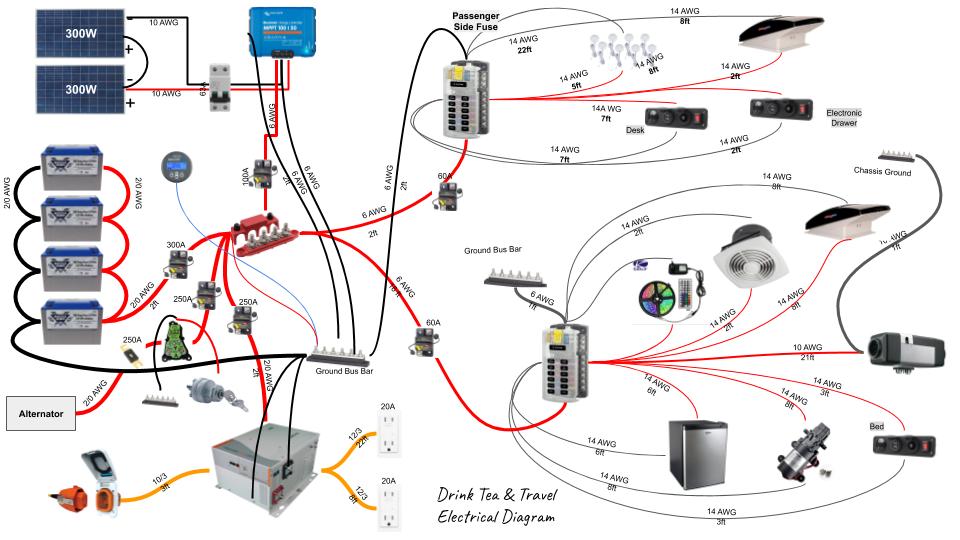
Best Campervan Solar Panels
From solar kits to portable panels, all the solar panels in this list are excellent choices for a campervan solar panel.
Renogy 200W Solar Panel Kit w/ MPPT Charge Controller
Best For: Beginners seeking an all-in-one solution
Price: $$
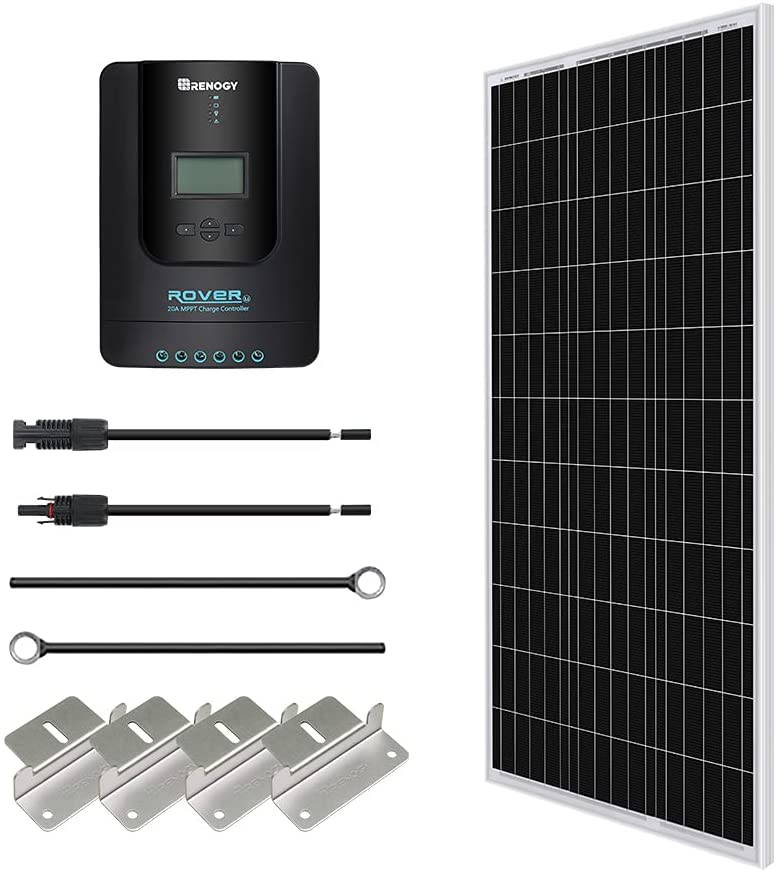
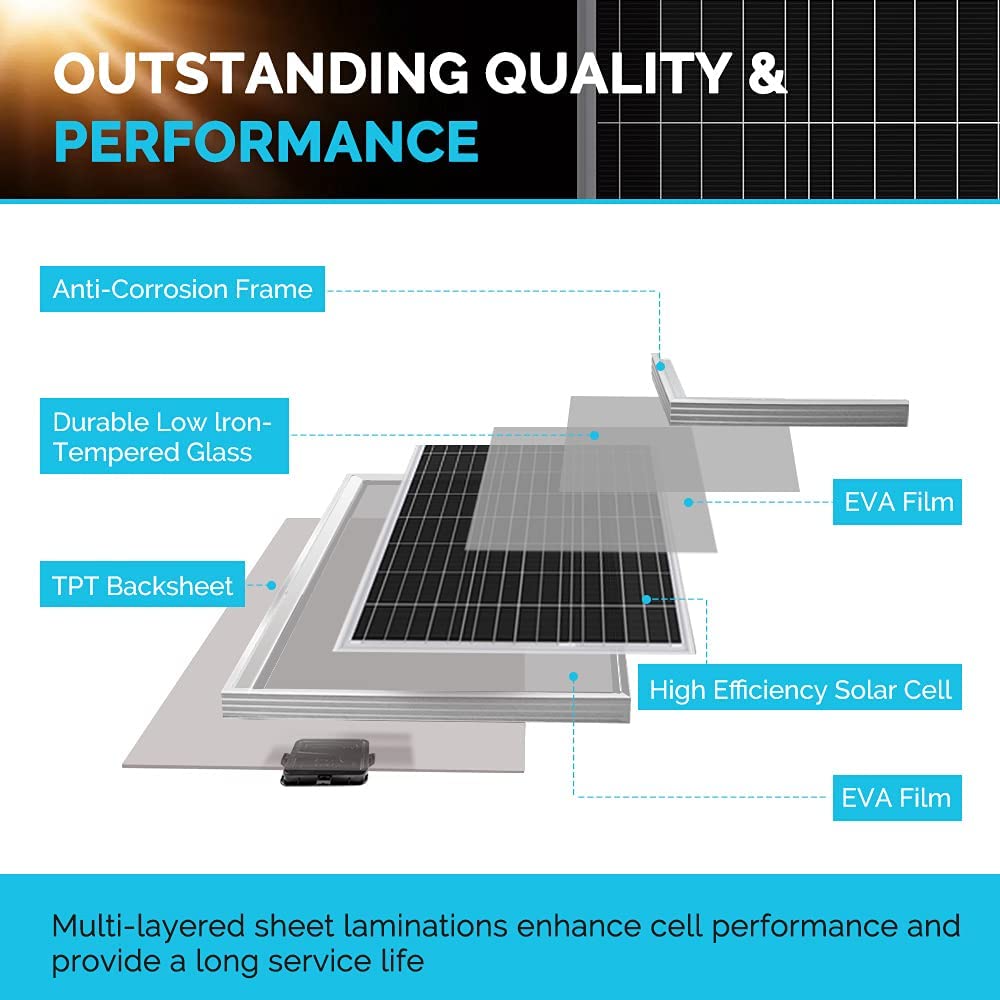
Renogy makes some of the best solar panels for campers and this solar kit is no exception. For starters, the camper solar panels are monocrystalline for an ultra-efficient solar output. The kit includes two 100W rigid panels, a 20A MPPT charge controller, wiring, and mounting brackets.
Solar panel kits are excellent for beginners to take the guesswork out of caravan solar power. The 200W power output in this camper solar kit is a good amount for any van life solar setup. The panels are durable and have a slim rectangular shape that can easily mount to your roof rack. Overall, this is the best camper solar panel kit thanks to its efficiency and affordable price point.
Pros:
- Includes everything you need for a complete campervan solar setup in a box (just add batteries)
- Lightweight and durable panels
- Comes with an MPPT (maximum power point tracking) solar charge controller
- Affordable all-in-one price
Cons:
- Limited to what’s included in the kit
- Premium price for the MPPT charge controller (other charge controllers available in Renogy’s other solar panel kits)
WindyNation 400W Polycrystalline Solar Panel Kit
Best For: Large solar output on a budget
Price: $$
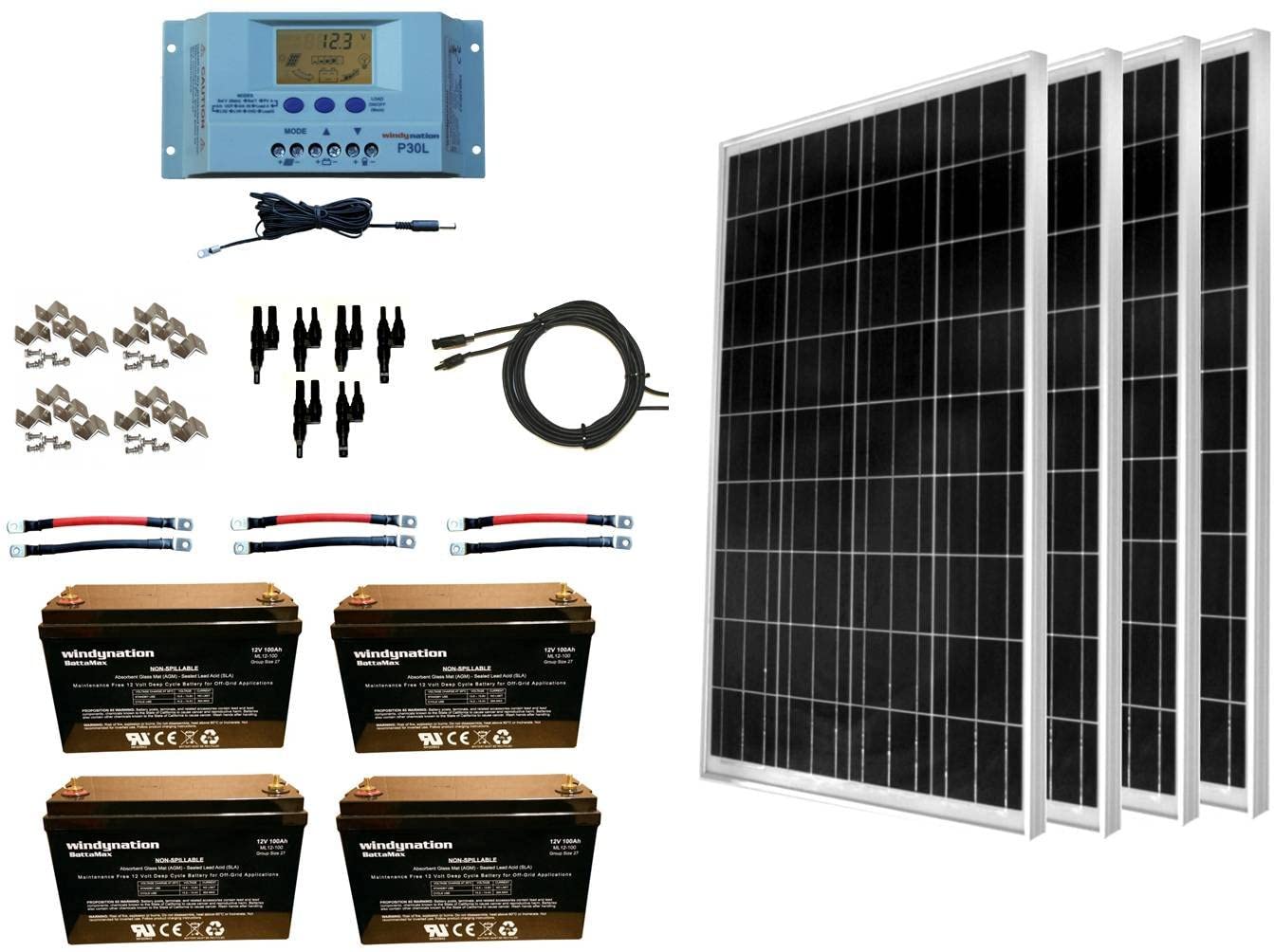
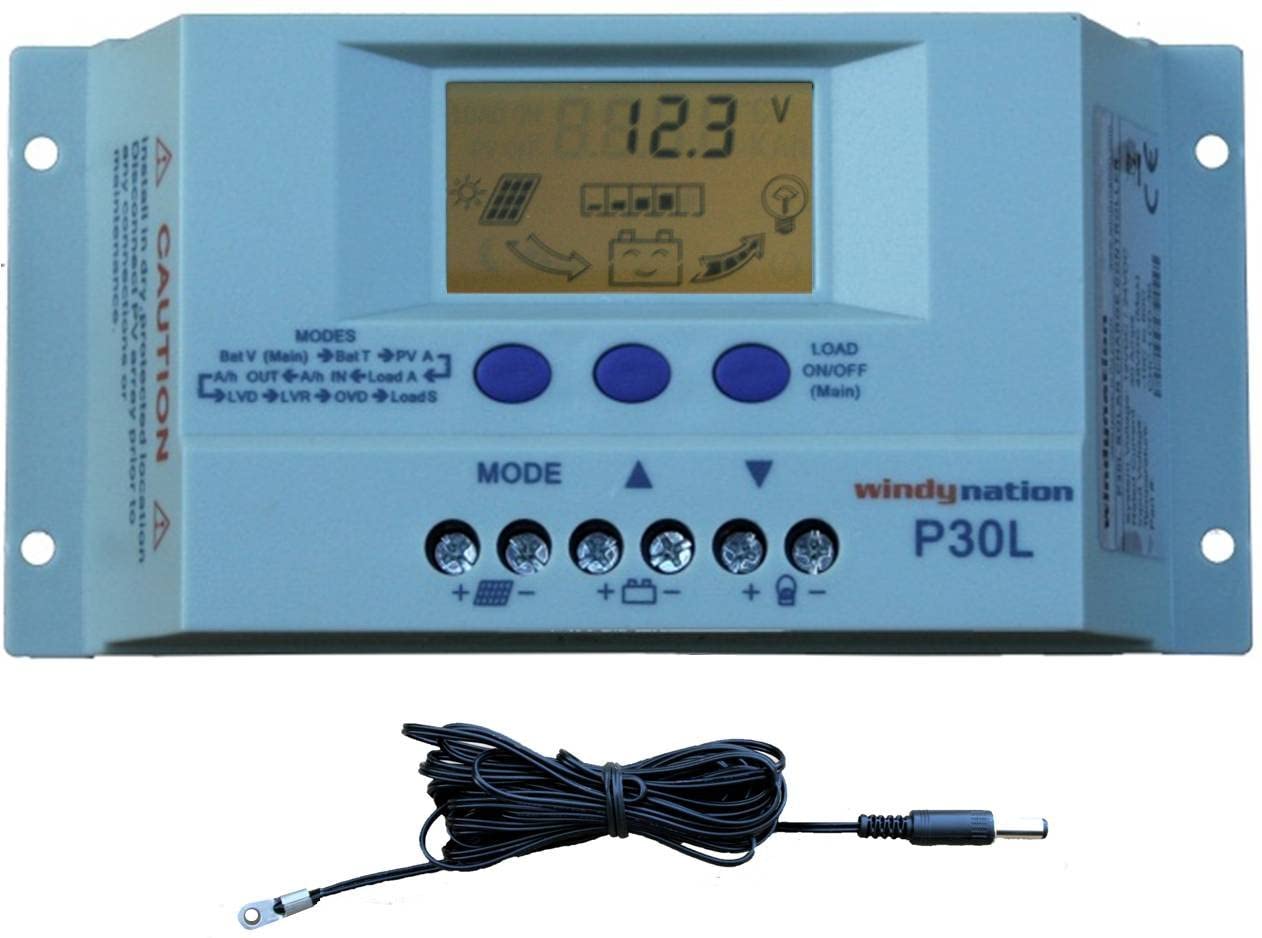
One of the best RV solar kits for those needing a lot of power without breaking the bank. WindyNation makes several different solar panel kits for RV living that work great for van life too. This van solar panel kit includes four separate 100W panels, a 30A charge controller, wiring, and mounting hardware.
Keep in mind that these panels are polycrystalline, so they don’t have the same peak efficiency as mono. While they may not be the absolute best solar panels for van life, they still work well and are affordable. Plus, having four separate panels allows you to configure them to make the most of your roof space.
Pros:
- Affordable all-in-one kit
- Multi-panel solar array can produce a lot of power
- Durable solar panels on RV or vans
Cons:
- Polycrystalline solar panels aren’t as efficient
- Four panels might not fit on smaller vans
READ NEXT: 10 Best Portable Toilet For Campervan And VanLife
ALLPOWERS 12V 100W Flexible Solar Panel
Best For: Vans with curved roofs
Price: $$
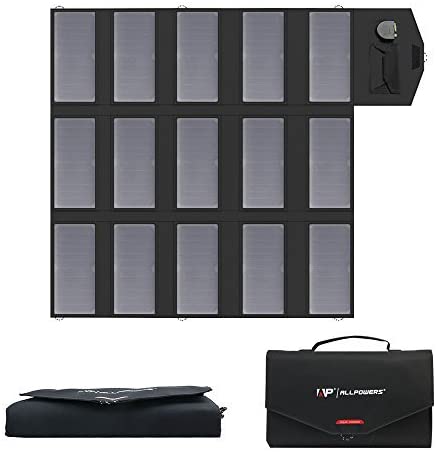
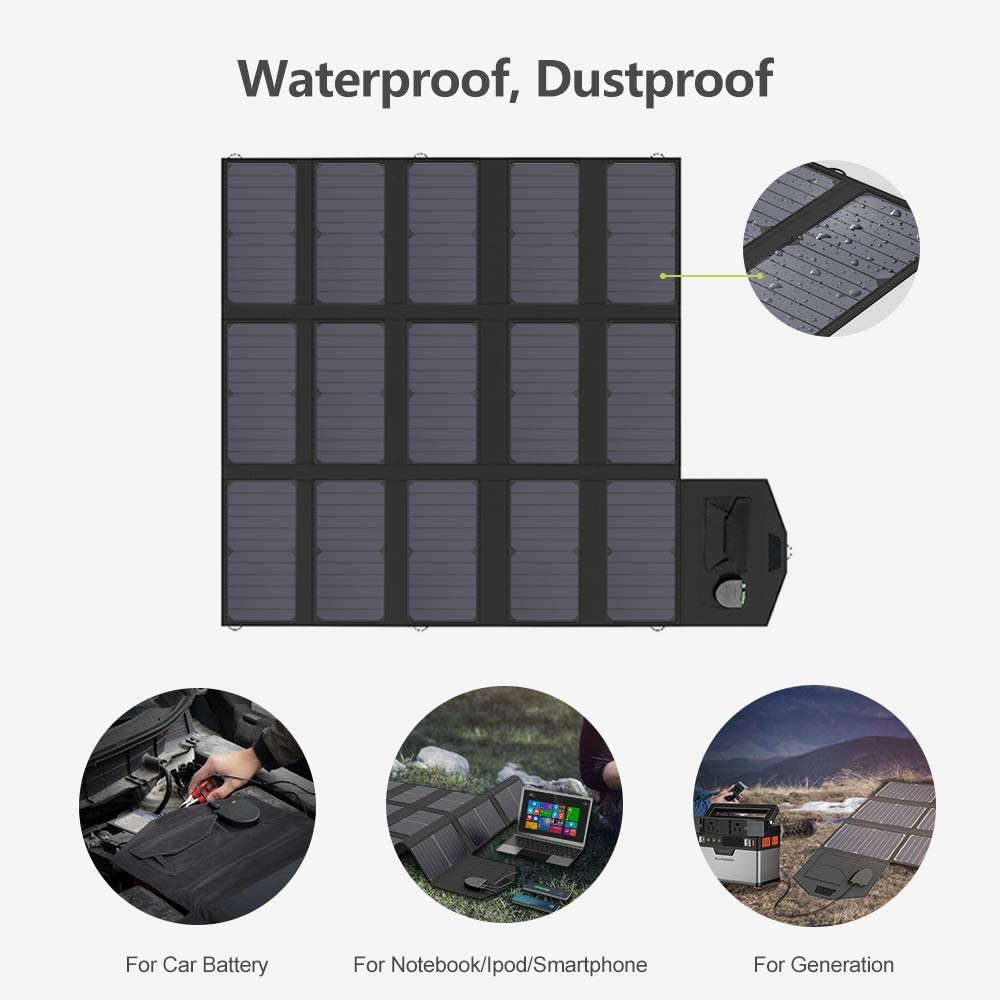
These are some of the best flexible panels for vans with rounded shapes or curved roofs. They can bend to wrap around awkward angles that a rigid fixed panel could not. They are coated with PET to improve durability and have a waterproof junction box that’s fully sealed. You can install them easily as one person with no need for holes or mounting brackets.
Depending on how much power you need, the 100W model is a good place to start when you’re not living in a van full time. Just bear in mind that flexible solar panels for campervans are more prone to scratches than rigid panels. This can shorten their lifespan as they’re not as durable.
Pros:
- Can bend up to 30 degrees to contour curved roofs
- Super easy to install
- Ultra-lightweight (only 4 lb)
Cons:
- Not as durable and prone to scratches
- Can often get shaded when placed on a curve
Newpowa 12V 200W Monocrystalline Solar Panel
Best For: Vans with limited roof space
Price: $
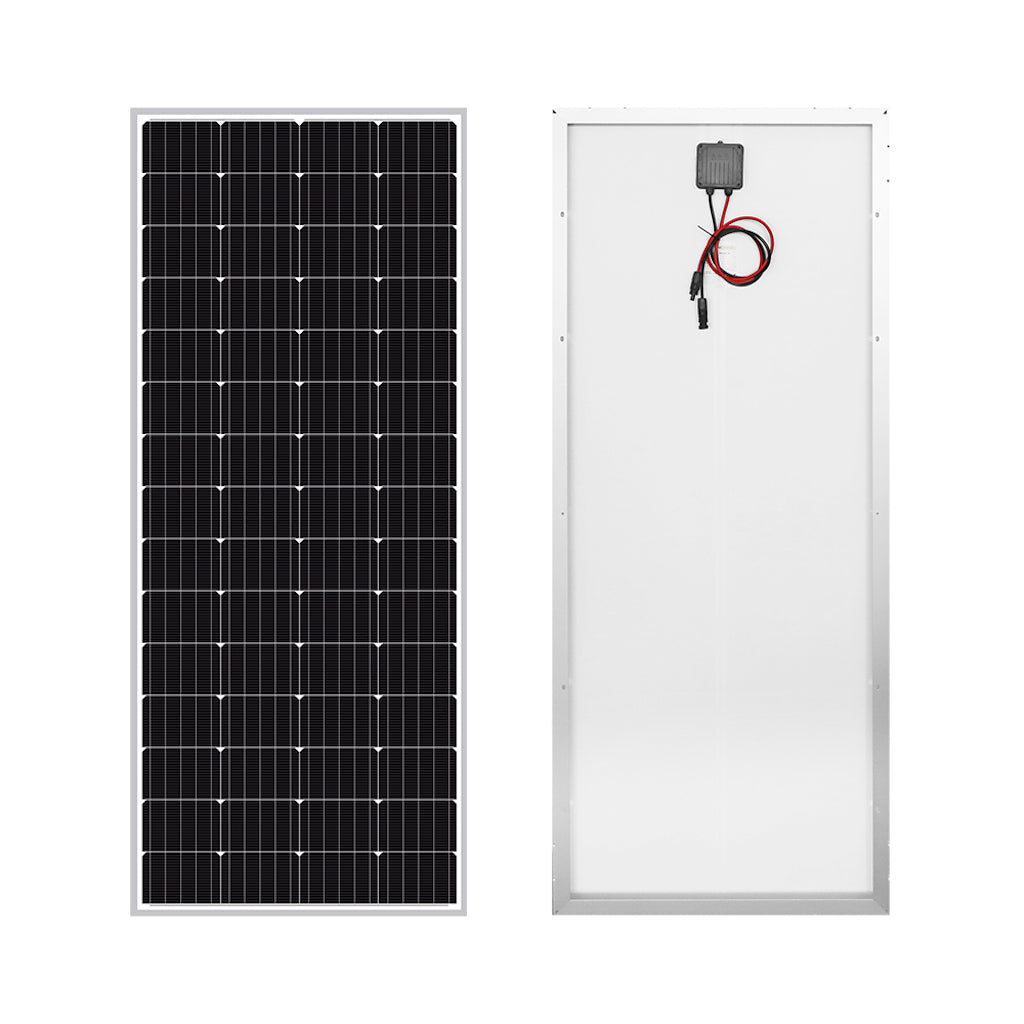
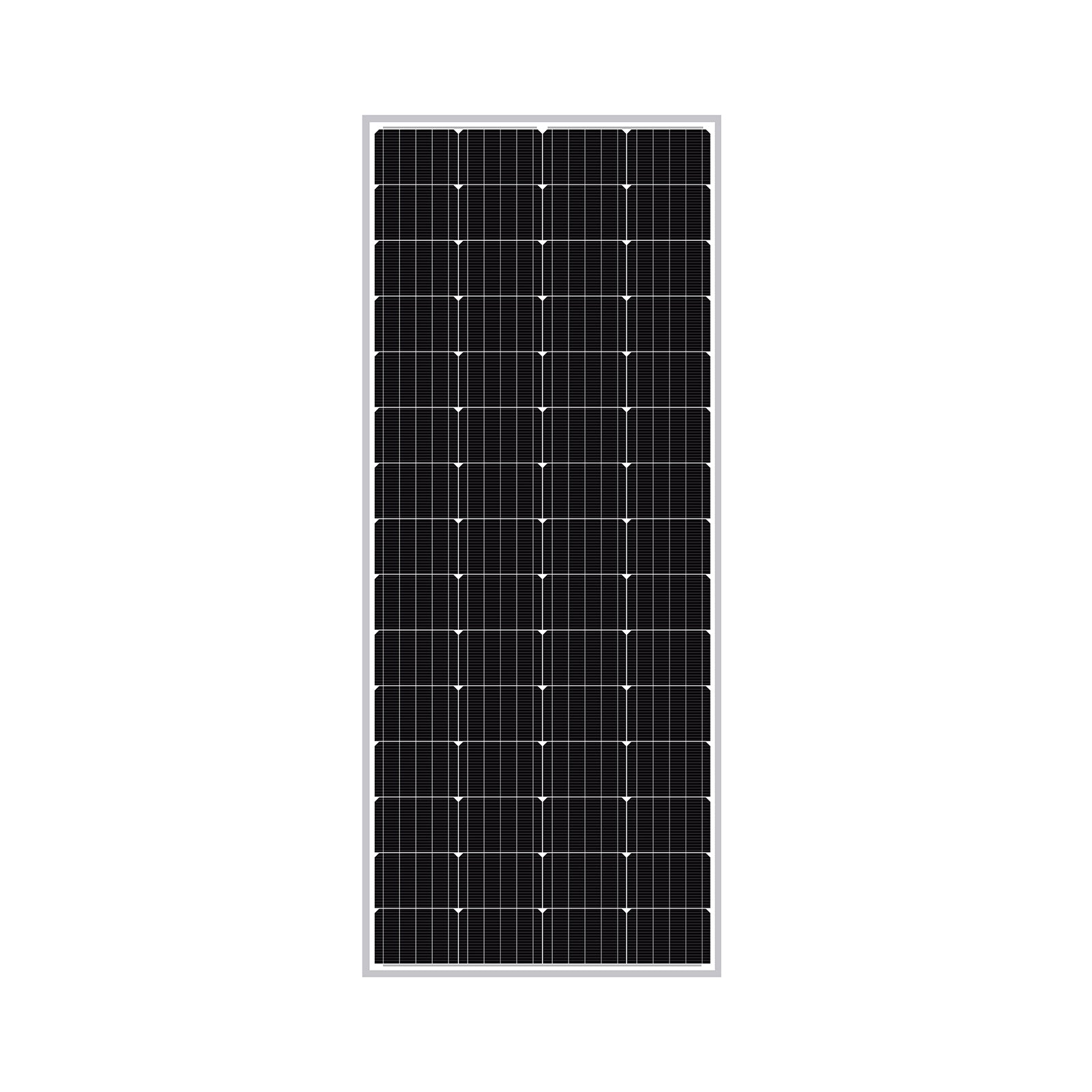
This 200W panel from Newpowa is the best solar panel for RV or campers with limited roof space. For a slightly larger panel (approx 165 cm x 67.5 cm / 64.5” x 26.5”), this has double the output of others. It’s perfect when you can’t accommodate two solar panels on van roof but still need the power.
This also makes it a great choice for RV solar panels because, with two, you can run all your appliances. These Newpowa vanlife solar panels are extremely efficient and boast some of the highest absorption/conversion ratings on the market. They’re durable and sturdy and come with a long 25-year warranty for peace of mind.
Pros:
- Larger solar output in a moderately sized panel
- Extremely efficient
- 25-year warranty
Cons:
- Heavy
- Larger than a standard solar panel for camper van
Renogy 12V 100W Foldable Solar Panel Suitcase
Best For: Weekend camping with solar panels
Price: $$$$
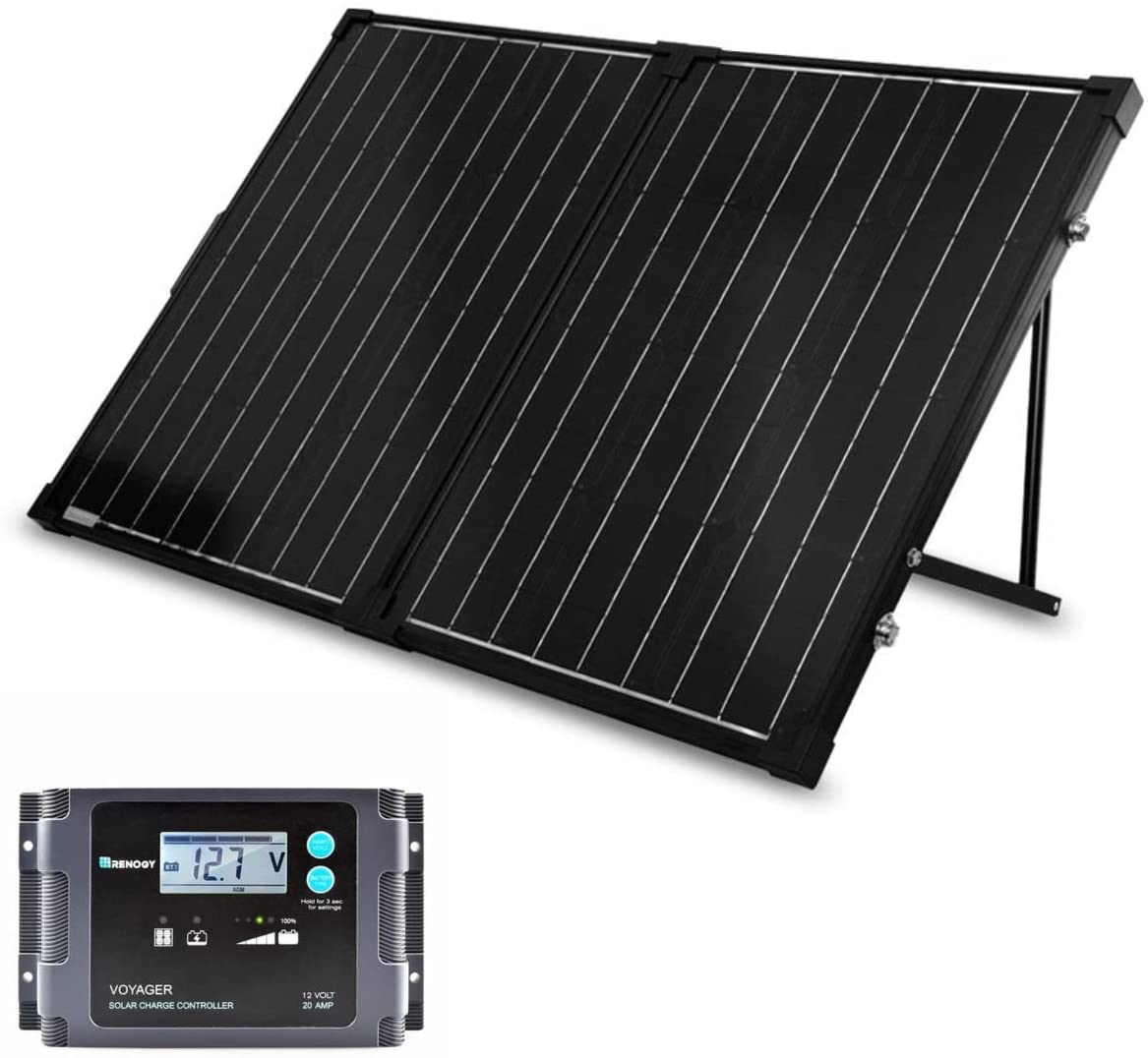
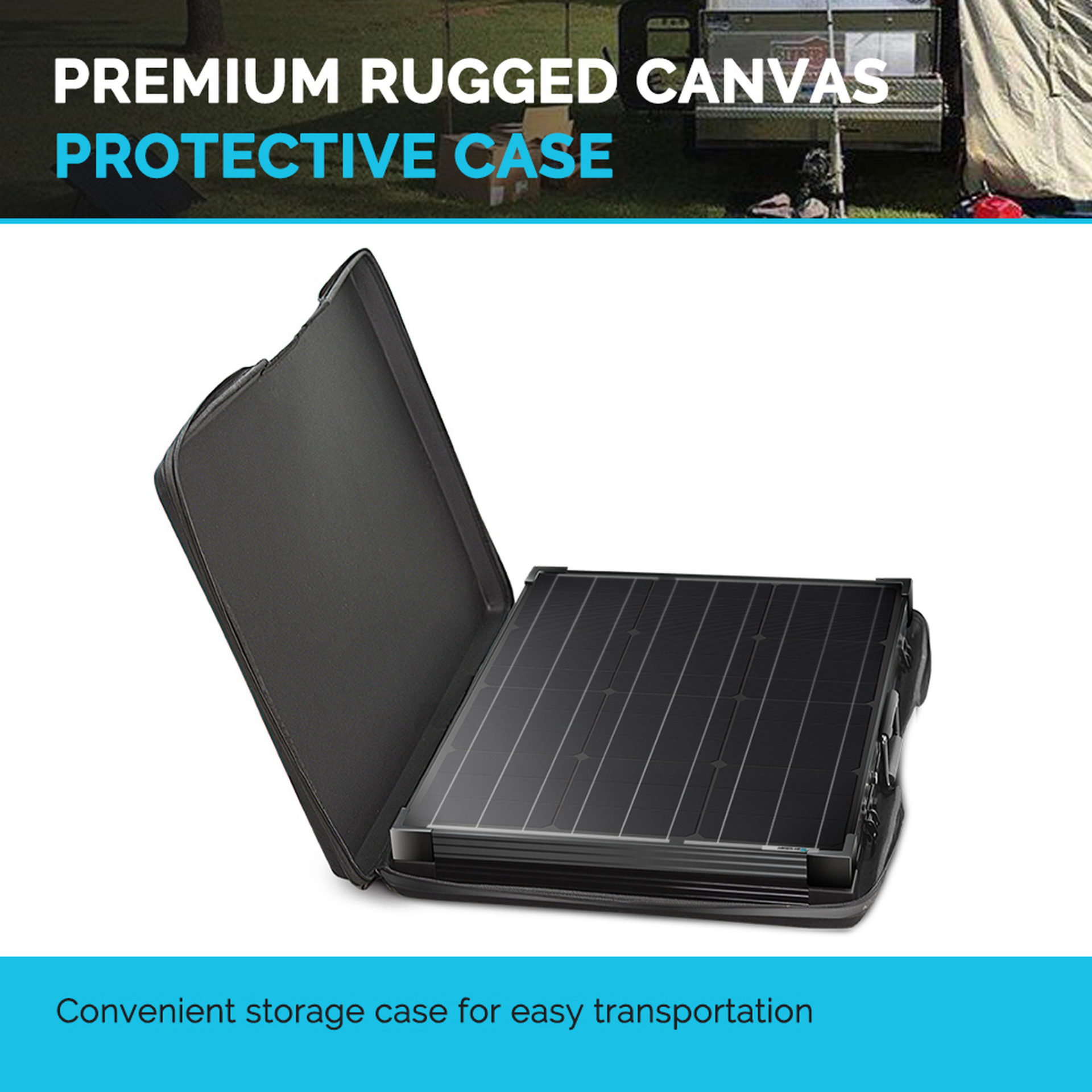
It’s no surprise that Renogy makes some of the best portable solar panels for campervan. Their foldable solar panel suitcase features two 50W monocrystalline panels and a built-in charge controller. This makes it super easy to unfold outside and harness solar power without the need for a permanent setup.
You can move the panels around based on the position of the sun and fold them away when you’re done. It packs into a small (50 cm x 69 cm / 20” x 27”) folded package that can easily stand or lay flat. This is a fantastic option for occasional use or if you want to boost your existing camper solar system.
Pros:
- Compact, durable, and easy to set up
- Built-in charge controller
- Waterproof
Cons:
- A bit pricey for 100W
- Needs to be stored when not in use
HQST 12V 100W Polycrystalline Solar Panel
Best For: Budget-friendly starter solar panel for campervan
Price: $
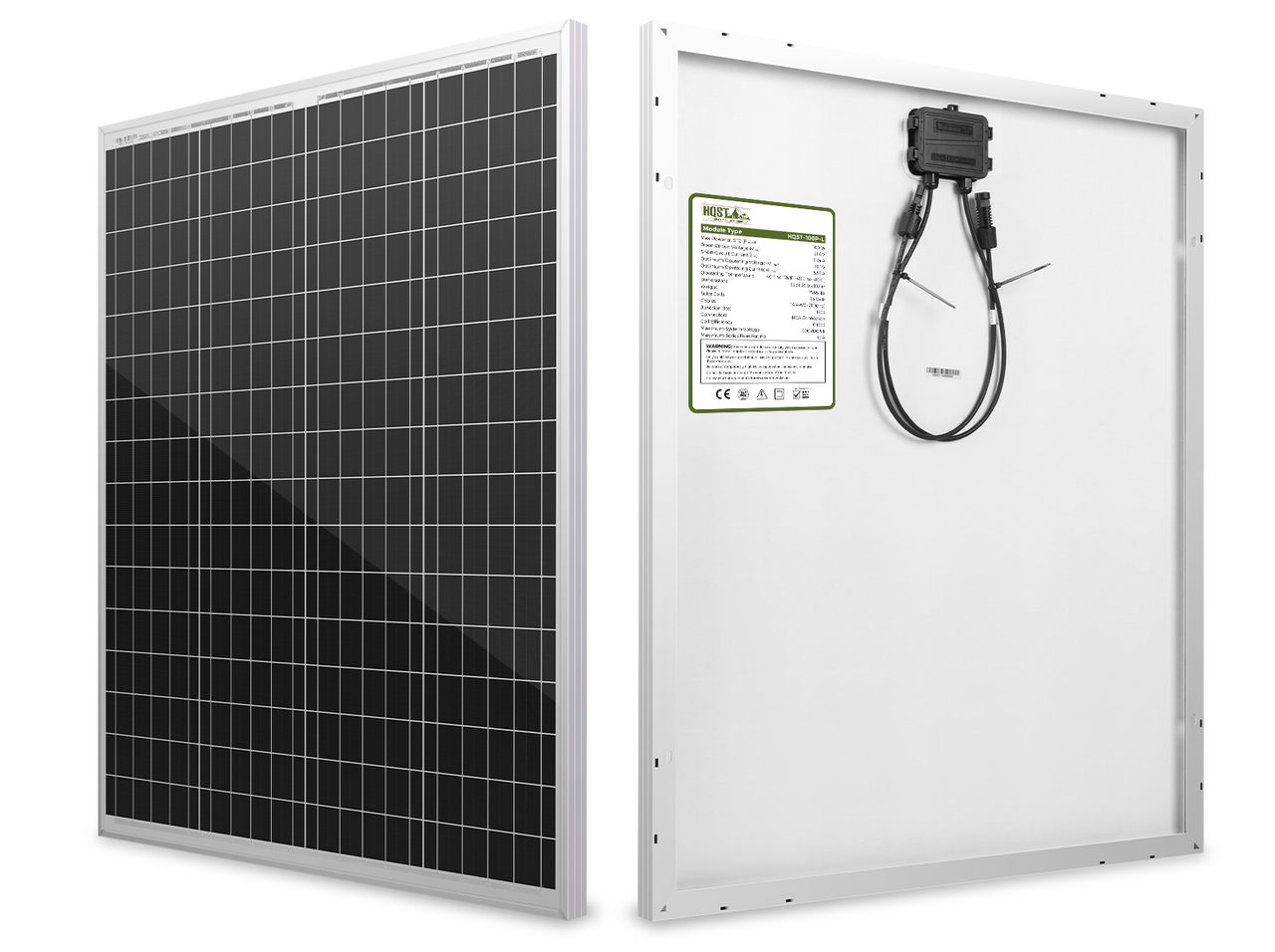
This HQST panel could be a great fit for someone looking to start their solar system economically. It’s much cheaper than other options while offering the same reliable and efficient power. Though polycrystalline doesn’t have the same output as mono, it performs very well in low light—AKA great for shadier days. The panel is rigid and durable and can hold up to any weather that hits it.
One unique thing about this panel is that it’s almost square. The compact shape is perfect for certain van roofs since it can sit nicely on a roof rack. It might not work for all vans, but it’s nice to have different options when the regular rectangular doesn’t work. All in all, HQST makes some of the best solar panels for RV or van life for the price.
Pros:
- Great price
- Square shape works great on certain vans
- Totally weatherproof and very durable
Cons:
- Polycrystalline isn’t as efficient
- Square shape doesn’t work on all vans

